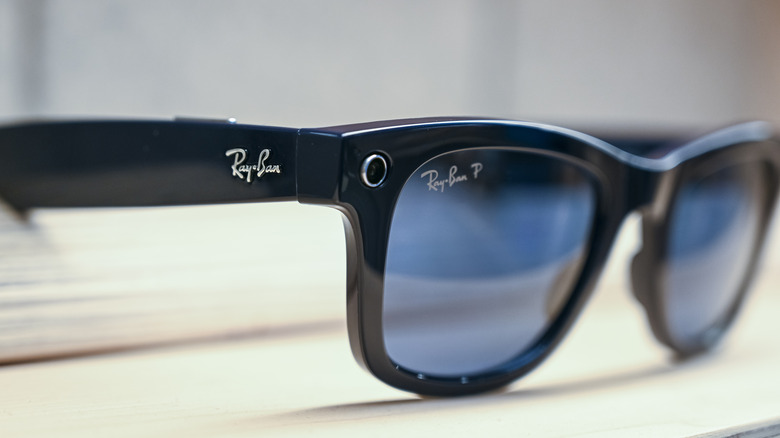Meta's Ray-Ban Stories Smart Glasses Struggle As Owners Stop Using Them
Meta launched its camera-equipped Ray-Ban Stories smart glasses in 2021, but in a product cycle that is nearing two years, fewer than 10% of the buyers are using it regularly. According to internal data seen by The Wall Street Journal, Meta has shipped nearly 300,000 units, but only about 27,000 have reached the monthly active usage status.
That's still a generous figure, as a healthy bunch of consumer tech products pride themselves on the daily active user (DAU) figures, signaling their popularity as a device that is used on a daily basis. While the monthly active user (MAU) is abysmal in itself, what's more concerning is that the return rate of Ray-Ban Stories is even higher, at 13% of total sales.
On the bright side, not all figures are shabby for Meta. The company reportedly had an internal target of selling 478,000 units in its entire product life, but the shipment forecast was reportedly trimmed down to around 394,000 pieces. Meta is still about 25% shy of reaching that goal, but there's no word on a break-even point for it, and whether Meta will end up taking a loss on its smart glasses endeavors.
Connectivity woes and sub-par battery life are said to be the key reason behind the failure of Ray-Ban smart glasses. Other reasons cited in the report include "inability for users to import media from the devices, issues with the audio on the product, and problems with voice commands."
Meta is bullish on these shades
Meta has been a laggard at feature development for the device. For example, it was only in May 2023 that Spotify Tap arrived on Android and voice control for message replies was rolled out. But it seems that Meta is unfazed by the apparent failure of Ray-Ban Stories. Citing unnamed internal sources, The Wall Street Journal's report says Meta is working on a second-gen iteration.
This one will improve in a few crucial areas, such as offering a longer battery life and serving better quality cameras. Meta will also offer the upcoming smart glasses in more styles, catering to a larger audience with diverse tastes. With the upcoming model, which is reportedly targeting a Holiday season debut, Meta aims to make feature discovery easier.
But once again, these won't be "real smart glasses" that can tap into virtual or augmented reality ecosystems. Instead, they will once again look like regular Ray-Bans with a speaker and camera onboard.
Meta is still saving the Ray-Ban Stories from more ambitious projects like true AR glasses, but the company won't say when exactly it will expand the portfolio of its "metaverse-ready" devices beyond the headset form factor.
Another challenge would be the privacy implications. Just like Google Glass, questions were also raised about the Ray-Ban Stories potentially being used to record other people without their consent. Moreover, Meta's past history with user privacy doesn't instill much faith either.

